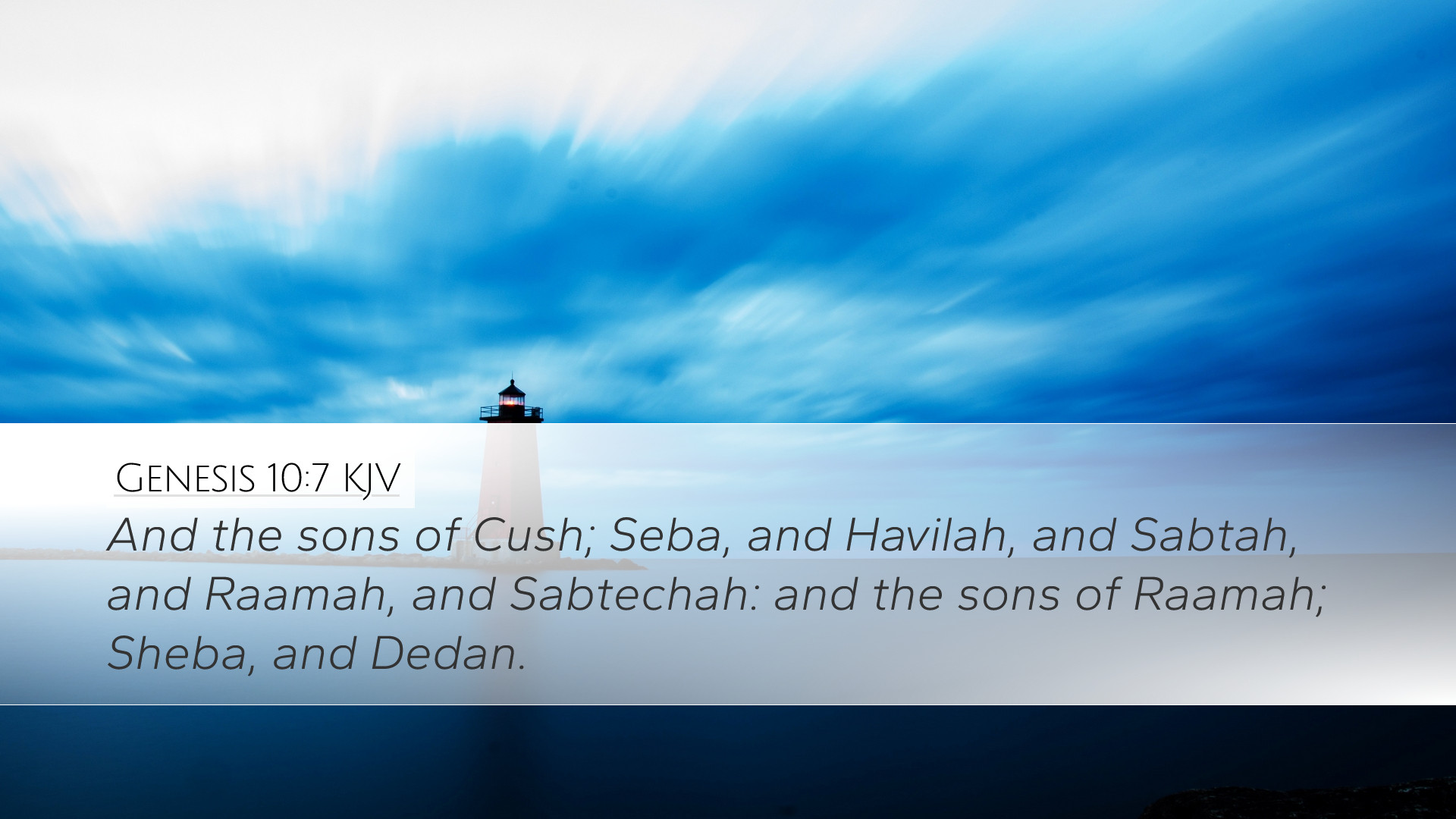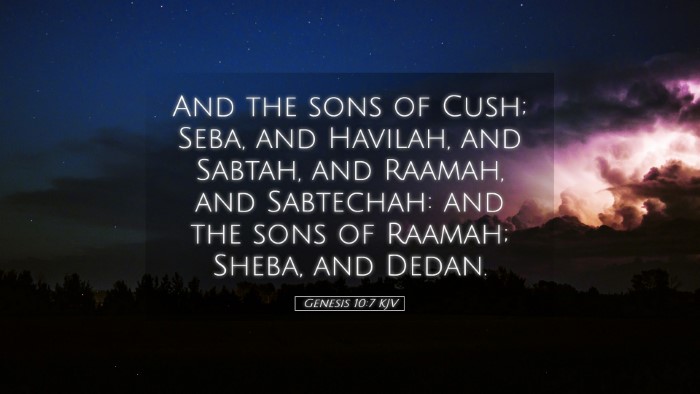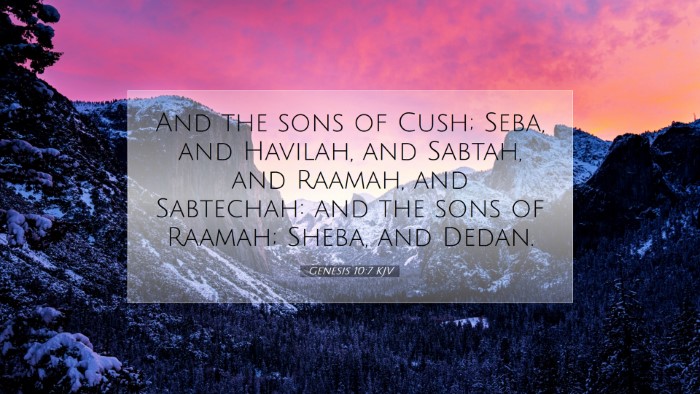Bible Commentary on Genesis 10:7
Verse Context: Genesis 10:7 states, “And the sons of Cush; Seba, and Havilah, and Sabtah, and Raamah: and the sons of Raamah; Sheba, and Dedan.” This verse begins to detail the genealogies of the nations arising from Noah’s descendants after the flood, emphasizing the proliferation of nations and the diversity of peoples that emerged.
Overview of Genesis 10
Genesis 10, often called the "Table of Nations," provides a crucial understanding of the dispersion of nations and the origins of various people groups in the ancient world. This chapter serves both as a historical record and a theological reflection on God’s purposes in human history.
Significance of Genealogies
The genealogies in the Bible are far more than mere records; they serve specific purposes:
- Historical Record: They document the lineage from Adam, through Noah, and beyond, establishing the historical backdrop for the Israelite identity.
- Theological Implication: They illustrate God’s sovereignty over nations and His ongoing plan for redemption through specific lineages, notably leading to Christ.
- Cultural Identity: These lists describe the nations' origins, emphasizing culture, language, and lineage, which helps in understanding the dynamics of the ancient Near East.
Commentary on the Sons of Cush
The verse specifically mentions the sons of Cush, who are of significant importance in biblical history. The line of Cush is often associated with the region of Ethiopia and parts of Africa, highlighting the geographical spread of Noah's descendants.
Insights from Public Domain Commentaries
Matthew Henry's Commentary
Matthew Henry points out that Cush is considered the progenitor of the Cushites, known for their distinct features and culture. His commentary highlights that the descendants presented here not only represent a physical lineage but also embody the unfolding of God’s plan where diverse peoples come into being. Henry emphasizes that the names listed, including Seba and Havilah, indicate the variety of tribes and cultures arising from this lineage, illustrating the complexity of human societies as ordained by divine providence.
Albert Barnes' Notes on the Bible
Barnes elaborates on the significance of each descendant, noting that Cush was often associated with regions characterized by distinct customs and practices. He notes that this genealogy illustrates the vastness of humanity and the various roles different nations would play in biblical history. According to Barnes, the mention of Sheba and Dedan could imply trade and the importance of economic exchanges in antiquity, indicating that these nations would not be isolated but interconnected with others, which foreshadows their interactions in later biblical narratives.
Adam Clarke's Commentary
Adam Clarke extensively discusses the geographical implications of the names mentioned. He suggests that the descendants of Cush spread throughout regions known for rich resources, implying that God's blessings also extended to these nations. Clarke also points to the historical interactions between Cush and Israel, asserting that understanding these nations becomes critical for recognizing the broader narrative of Scripture. The impact of these peoples on world history, from the perspective of Clarke, reflects God’s orchestration over nations for His purposes, ultimately leading to the Gospel’s reach into all nations.
Theological Reflections
This verse and its genealogical context prompt deep theological considerations:
- The Universality of Humanity: The passage underscores that all nations stem from a common ancestry, which can enrich discussions on racial and cultural unity in the body of Christ.
- Divine Sovereignty: The spread of nations serves as a testament to God’s sovereign plan, showcasing His control and purpose throughout human history.
- Missiological Implications: Understanding the origins of nations encourages missions and cross-cultural engagement, as it highlights God's desire for every tribe and tongue to hear the message of salvation.
Conclusion
Genesis 10:7, while appearing to be a straightforward genealogical listing, is rich in implications that serve to broaden the reader's understanding of Scripture. It invites pastors, students, theologians, and Bible scholars to reflect on God’s overarching narrative in the history of humanity, the significance of cultural diversity, and the profound truths about God’s kingdom as it relates to all nations. Through the study of this verse, the faithful are reminded of God’s involvement in history and His ultimate plan of redemption that encompasses every nation under heaven.


